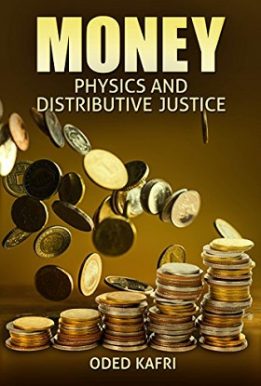Money: Physics and Distributive Justice
Can physics explain the economy?
Many people believe that there is a lot of money in the world and that its distribution among people is unjust. Most people also believe that the reason for economic crises is an inherent illness of the system or the result of misguided or even tricky actions that can be avoided.
In this book, it is argued that the amount of money in developed countries is zero, the income distribution among people is purely statistical, and that volatility in the economy is inevitable, just like the fluctuation in our mood.
Why are very few people so rich and many so poor, and why do CEO’s make so much money?
We show that income distribution is the universal distribution that also exists in many other phenomena, e.g., the distribution of voters among parties, the distribution of buyers of books, and the distribution of the number of residents in cities. It also exists in the frequency of digits in data files, the frequency of earthquakes according to their intensity, and many other random phenomena. This easy-to-calculate universal distribution well predicts the economic inequality as reflected in the Gini Index, the relative percentage of the poor, the salaries of CEOs, and the fraction of wealth held by the richest.
The book is of interest to a wide audience of economists, sociologists, politicians, and the general public alike. It relies on theories from physics and economics, and its contents are based on scientific publications, whose references are at the end of the book.

